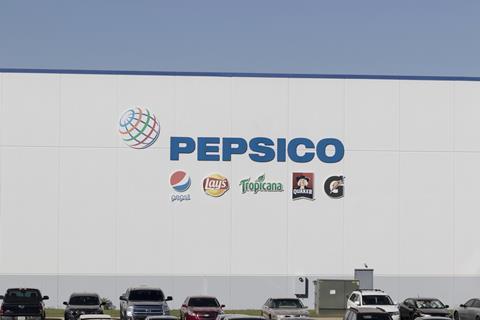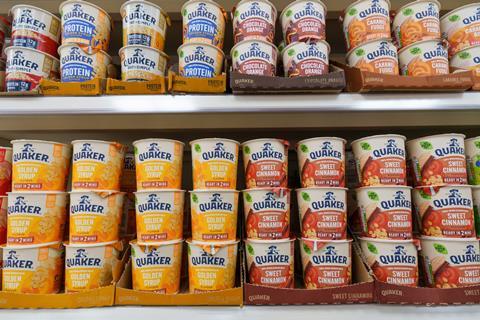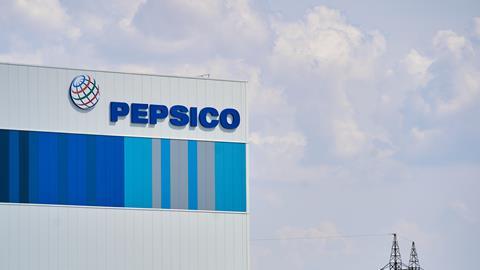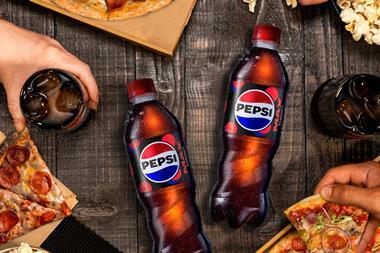Elliott Investment Management sees a ‘rare chance’ to fix issues with the snacks and drinks giant
Pepsico’s board has been handed a polite ultimatum: fix your performance, or face consequences.
The note came from activist investor Elliott Investment Management, a hedge fund renowned for high-profile interventions in underperforming companies.
“These guys are number one. It’s a pretty serious situation when these guys take a position in your stock,” says one New York analyst.
Having built up a reported $4bn stake in Pepsi in early September, Elliott last week published a letter to PepsiCo management outlining its transformation plan for the ailing drinks and snacks giant.
“The company’s strategic and financial challenges have recently led to poor operational results, sharp stock-price underperformance, and a meaningfully discounted valuation,” Elliott partners Marc Steinberg and Jesse Cohn write.
Elliott estimates PepsiCo’s shares are trading at a 4.1x discount against its peers in consumer staples, vs an historic average premium of 1.4x.

The unhappy market performance follows more than a year of disappointing results for PepsiCo, whose revenue totalled $92bn in 2024.
For six consecutive quarters, sales at PFNA, Pepsi’s North American snacking business – worth $27.4bn in 2024 – have fallen. In the same period, the North American drinks business PBNA ($27.8bn sales in 2024) has managed a maximum 1% organic quarterly growth.
The drop is in contrast to Pepsi’s flying performance in 2022, in which net sales rocketed 12.9%, albeit largely from price increases.
“While unfortunate, this disappointing trajectory has created a historic opportunity,” say Steinberg and Cohn. They see a “rare chance” to revitalise PepsiCo and deliver “more than 50% upside” to shareholders.
Their plan involves Pepsi refranchising its “operationally intensive” bottling plants – about 75% of its North American bottling network is owned and run in-house – cutting costs at PFNA, streamlining SKU and brand portfolios, and then investing heavily in core growth areas, all while improving communication with neglected investors.
Elliott’s intervention has put PepsiCo’s board under the spotlight. Investors will now watch carefully for the response.

Turning the tanker
It’s “good analysis, so you have to take [Elliott] seriously,” says one City source. “But PepsiCo is a tanker, not a speedboat, and it’s very hard to change a tanker’s direction.”
Refranchising could prove the most contentious suggestion. Unlike Coca-Cola, Pepsi never refranchised its bottlers after both companies took them in-house around 2010. This has left Pepsi with a substantial bottling business that is low margin, asset-intensive and entirely different to the marketing-driven concentrate business.
“In hindsight”, refranchising has proved the “superior business model” says RBC Capital Markets analyst Nik Modi, reflected in Coca-Cola’s strong performance. “Its bottling system plays to the strength of all parties’ circle of competence.”
But refranchising would be messy, especially for investors. Selling off a significant chunk of PBNA’s assets would likely dilute Pepsi’s earnings per share by mid-high single digits for months, with full benefits not delivered for two or three years.
Read more:
-
PepsiCo Walkers factory restructure plan puts 500 jobs at risk
-
PepsiCo eyes UK launch for Tostitos Scoops tortilla chips
-
Activist investor unveils plan to turn around ‘deeply undervalued’ PepsiCo
-
PepsiCo, Mars and ADM launch regenerative agriculture programme in Poland
On the other hand, Modi warns: “Most corrective actions will likely cause EPS dilution in the near term.”
Less controversial are Elliott’s plans to “streamline” the PFNA portfolio, “divesting non-core and underperforming assets”.
Organic growth at PepsiCo juggernaut Frito-Lay North America collapsed to –0.5% in 2024, after averaging 3%-5% for a decade, and hitting 17% in 2022. Volumes fell in every quarter of 2024.
And despite the universal challenge of GLP-1s, management must take some blame. In 2024, Frito-Lay was accused of price gouging, and staple brands Lay’s and Tostitos have suffered nearly flat growth.
Elliott suggests management “right-size PFNA’s cost base for the current demand environment”.

Quaker, which suffered four consecutive quarters of double-digit contraction in 2023-2024, is seen as a key target for divestment by analysts, who back Elliott’s intervention.
For Elliott’s $4bn gamble to pay off, either PepsiCo must agree to act or Elliott must convince investors.
Either seems possible.
A positive investor reaction to the “expected” intervention had already been priced in with Pepsi’s run of 8% growth in August, according to Modi.
PepsiCo has said it “values constructive input on delivering long-term shareholder value”.
TD Cowen analyst Robert Moskow says: “Counterintuitively, we believe management will appreciate Elliott’s intention to collaborate rather than antagonise.”
And they must do something. As the City source notes: “They can’t go too many quarters with a share price substantially lower than it should really be.”




















No comments yet